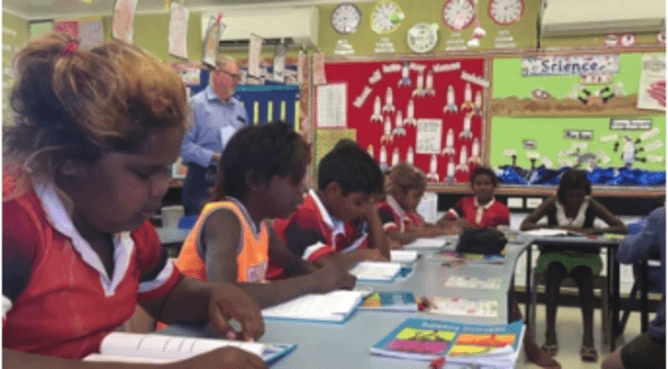
On the education front, it’s brought into sharper focus what our education system can offer in terms of flexibility and appropriateness.
Everyone at all levels of education has had to work together to redesign learning in very different ways. Much like the accelerated efforts to formulate a COVID 19 vaccine, we’ve had to launch into real-time testing of the education system response.
While this isn’t ideal, it is timely to think about what we want from our education system. In terms of schooling, there’s been a recognition for some time that there’s a need to reform our system (as outlined in numerous reports, including David Gonski’s Through Growth to Achievement in 2018).
Clearly, there’s a capacity for online learning, but at the same time we’ve seen how important our schools are as social institutions – ask any parent who currently has children at home and engaged in online learning.
The playing field is not level. The test for our education system is now how agile and flexible is it to respond to these inequities.
All members of our communities are under significant stress in working through these issues, as evidenced by a colleague’s recent online university class, where the students needed time to share their anxieties and support each other. “We’re all in this together” is such an important reminder in working though this pandemic.
So, I read with interest about the petition to scrap ATAR and all Year 12 examinations in 2020.
While I acknowledge the anxiety that many Year 12 students (and their parents) are under, I believe the actions over the past few weeks have shown that we need to look out for each other.
Certainly, online learning has highlighted inequities in access and support for many students – the playing field is not level. The test for our education system is now how agile and flexible is it to respond to these inequities.
The Year 12 cohort across the nation (not just Victoria) needs consistent messaging, but such missives need to be reasonable, address the inequities in the best possible way, and flex in ways to limit any disadvantage or advantage. There is real anxiety, for example, in Queensland, where not only are students in Year 12, but are engaged in the first year of a new Year 12 system.
We shouldn’t conflate differing issues. Year 12 exams and school-assessed coursework, whether you agree with this system or not, are designed to assess what students know and, to some extent, are able to do in particular fields of learning such as English, mathematics, science and so on. This in itself is limited, as there’s little or no attention paid in these systems to capabilities such as creativity, critical thinking, or ethical behaviour. Nor are the systems embedding major priorities such as sustainability.
So these systems, with noted limitations, offer some insight into students’ knowledge and abilities in subjects they’ve chosen to study.
Perhaps the real message here is to not over-inflate the importance of ATAR and to use it inappropriately.
These assessment systems should not, then, be conflated with ATAR – which is a rank score of all in this year cohort who want to participate in scored study scores, for the purposes of tertiary selection. It tells us little about the person’s specific interests, personal qualities, and capabilities.
Such limitations are also increasingly being acknowledged as tertiary selection engages in processes that do offer such insights (consideration of personal qualities, communication skills and collaborative/team skills).
So, back to the petition. Will banning ATAR and exams make it a level playing field for our Year 12 students? This is unclear from the petition. Will it decrease the anxiety? This is also unclear, as there are no alternatives presented.
What has been reducing the anxiety is our continued connection with each other. Yes, it’s important to listen and embrace the anxiety, but the major consideration is what will be best for everyone moving forward. And, just like the numerous and iterative government responses, what’s best for everyone in this rapidly changing environment needs to be continually revisited.
The imperative, when time is so short at present, is to best minimise the impact for all, clearly communicate such responses, then act together. Time has become a precious commodity. At the moment, I believe we need to work together, share our anxieties, but be mindful that when a course of action is taken, it’s hard to backtrack.
ATAR isn’t the achievement at the end of Year 12 – if you have one, you only use it once, to be selected for entry into a tertiary course, and that is its purpose. Perhaps the real message here is to not over-inflate the importance of ATAR and to use it inappropriately.
The real question here is, how do we make Year 12 equitable for all, and this is more about what we value in education through our assessment practices. These are things that really need changing – and perhaps the pandemic has brought this into sharper focus.








